 My friend, the writer Laura Valeri, has written a thoughtful reply to Ryan Boudinot's "Things I Can Say about MFA Writing Programs Now that I No Longer Teach in One," an article that has engendered much conversation--some heated, some in agreement, some dismissive--on social media as of late. I posted the article here and on my Facebook page, too. As I said then, I don't necessarily agree with all of Boudinot's points, but I think he does raise some interesting questions for those who teach creative writing in the academy, even if those questions lead to paths that are well-trod. Nonetheless, I think this kind of debate/conversation is good for our profession, tiresome as some find it--I find the MFA-bashing tiresome, myself, for the record. Laura Valeri, "Those Who Can, Teach: A Formal Reply to Ryan Boudinot's Post on Teaching" My job [as a creative writing teacher] exists because of students who don’t read much, students who love to write but have difficulties expressing themselves, students who really want to excel and be great but are misinformed about the discipline and skills it takes to get there. We as teachers simply cannot dismiss students as “not having it” and “not being born with it” or “too late to get to it.” It’s unacceptable. If we accept them into MFA programs, take their money, and time, and hopes and dreams, then we have to make it work.
1 Comment
 I do not teach in an MFA program. I didn't attend an MFA program. I did, however, complete a PhD with a focus in creative writing. I am of two minds about the critique of MFAs. On the one hand, I find the elitism and exclusivity of the AWP Industrial Complex troubling. It reduces all forms of writing to one kind. On the other hand, MFA programs have produced some remarkable writers. Further, MFA programs elevate the study of writing and emphasize some important truths about the writing life: to write well, one must read well; to write well, one needs a community of writers. So, I post this article not out of hatred for the MFA programs around the nation. I post it as food for thought. I hope that you'll read this and take a few minutes to think about it. Ryan Boudinot, "Things I Can Say about MFA Programs Now that I no Longer Teach in One" (from The Guardian)
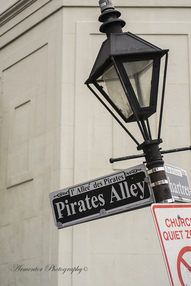 I'm happy to report that my as-yet-unpublished novel, A Stairway to the Sea, was named a semi-finalist in the Pirate's Alley Faulkner Society William Faulkner/Williams' Wisdom Novel-in-Progress Award. The award, judged in 2014 year by M.O. Walsh, is given to promising novels in progress by both new and established writers. The 2014 winner was Marcus Ruffin. To enter the 2015 contest and to see all the different categories for this award, please visit the Pirate's Alley website and support this great organization, which hosts the yearly Words & Music Festival in New Orleans. The awesome John Dufresne laying down the law in this TEDx Talk hosted by Florida International University. Not only did I get to hear John speak at the Gulf Coast Writers Conference in Panama City, Florida, a few years back, I had the distinct pleasure of working with John at the Sanibel Island Writers Conference this past year. He's a gracious and kind man, an astute critic, and a fantastic writer. If you don't know his work, run (don't walk) and purchase No Regrets, Coyote; Louisiana Power and Light; The Lie that Tells the Truth (the absolute best book I've ever read about writing fiction); or any of his amazing books. "Only trouble is interesting . . . everything you don't want to happen to your friends and family should happen to your character." No one could have said it better.  The Cove by Ron Rash The Cove by Ron RashMy rating: 5 of 5 stars Lush prose, well-drawn characters, and a tightly-woven plot all characterize Ron Rash's THE COVE, the story of Laurel Shelton, who lives in the Cove, an isolated area in the North Carolina mountains. Set during the first World War, THE COVE finds Laurel and her war-wounded brother, Hank (who lost a hand fighting in the European front), working to fix up the secluded family farm. Called a witch by the people of Mars Hill because of her parents' untimely deaths, Laurel endures her outcast status with grace and determination. Laurel's isolation from the community becomes the main theme of the novel, which takes a turn when Laurel nurses to health a musician she finds collapsed in the woods near her home. The novel explores the dark side of community. Southern writers like Wendell Berry love to extol the virtues of small towns. In THE COVE, Rash reveals the jingoism and xenophobia easily found in small-town America. At the same time, however, Rash shows that community is more than just location. It's about choosing--friends, relationships, and battles to fight. I really enjoyed this book. A few negative reviews on Goodreads and elsewhere have called the characters stereotypes. Nothing could be further than the truth. Like the mountain parakeets Rash describes in THE COVE, these people are unique, natives of Rash's beloved Appalachia. And like those parakeets, these people are in danger of disappearing. A beautiful, haunting novel. Highly recommended View all my reviews 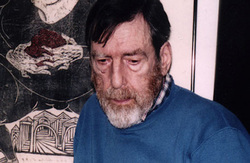 I just learned that the poet Russell Edson has died. I'm saddened and shock by his passing. I have long adored Edson's surreal prose poetry. He will continue to be an inspiration. He was a writer who ignored trends in pursuit of his original vision. Here's a poem by Russell Edson: A Journey Through the Moonlight In sleep when an old man's body is no longer aware of its boundaries, and lies flattened by gravity like a mere of wax in its bed. . .It drips down to the floor and moves there like a tear down a cheek. . .Under the back door into the silver meadow, like a pool of sperm, frosty under the moon, as if in his first nature, boneless and absurd. The moon lifts him up into its white field, a cloud shaped like an old man, porous with stars. He floats through high dark branches, a corpse tangled in a tree on a river. 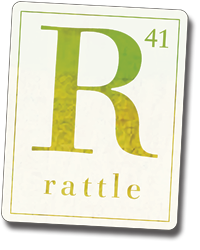 Karen J. Weyant has written a fantastic (and perceptive) review of Brackish. I'm flattered and honored by Weyant's words, which reinforce a belief I've long held about writing: it's a great thing to be read. It's a better thing to be understood. From the review: Through personal narratives and stories told from the past, readers watch a young boy growing up to come to terms with his place in this world. The landscape found in this collection is so vivid that when I was done reading, I could smell paper mills and fish. I could taste the salt of the ocean. I could hear music, a folksy hum that is not quite in tune. I could feel a fishing line between my thumb and fingers, a thin line tugging me, pulling me back in. Many thanks to Weyant for these kind words, and many thanks to Rattle for publishing the review. Check out Weyant's website here: http://thescrapperpoet.wordpress.com/about/ Be sure to check out Karen Weyant's poetry here: http://thescrapperpoet.wordpress.com/read-a-poem-or-two/ Also, you can purchase her chapbooks Stealing Dust (Finishing Line Press) and Wearing Heels in the Rust Belt (Main Street Rag). 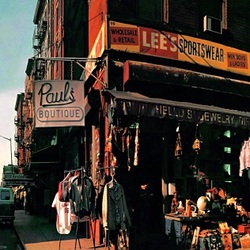 My essay "Paul's Boutique or, How I learned to Stop Worrying and Love the Beastie Boys" is now live over at StorySouth. Check it out. Thanks so much to Terry Kennedy and the find folks at StorySouth for publishing the essay, a reading of the album embedded in a personal reflection about my long relationship with the album. The essay is also a kind of tribute to Adam Yauch, the gravely-voiced MCA, who succumbed to cancer last year. When I heard of MCA's death, I was shocked by how much the news affected me. I've long loved hip-hop (as well as jazz, outlaw country, rock-n-roll, the blues, and a host of other musical genres), but I felt no special affinity for hip-hop. The emptiness and sorrow I felt over MCA's death forced me to write to figure out my feelings. The resulting essay taught me something about the way that I conceive of music and authenticity. I am pleased that what began as a post for this blog grew into something much more rich and c complex. I'm also happy that the essay appears in StorySouth. Way back in 2004, the late Jake Adam York published some of my poems there, one of my earliest publications. I'm honored to have been included back then, and I'm honored to see my writing in StorySouth again. This newest issue features awesome work by Richard Kraweic, John Tribble, and C.D. Mitchell. By the way, Mitchell's collection of short stories, God's Naked Will, has just been released by Burnt Bridge Press. You need to be reading this book right now. Yes, right now. Go, order a copy. Seriously. Read it. 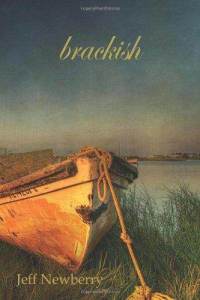 Thanks to poet and blogger (and recently-dubbed "Doctor") Keith Montesano for interviewing me for his "First Book Interviews" blog. You can find the interview here. The interview puts me in some very good company, and I'm honored to be featured by poets as amazing as Justin Evans, Allison Pelegrin, Dan Albergotti, Jehanne Dubrow, and Gary L. McDowell. To be mentioned in the same breath as these writers is simply overwhelming. Reading their work, I'm reminded that it's an amazing time to be a writer, despite the doom and gloom we hear about the so-called "death" of the humanities. Poetry is alive and kicking, and it's so much more compelling and diverse than anyone outside of the poetry world (and many inside the poetry world) suspect. Keith's a wonderful poet in his own right. Definitely check out his debut collection, Ghost Lights, a haunting and memorable book of poetry, as well as his follow-up, the forthcoming Scoring the Silent Film, both from Dream Horse Press. |
O for a muse of fire, Archives
March 2015
Categories
All
|
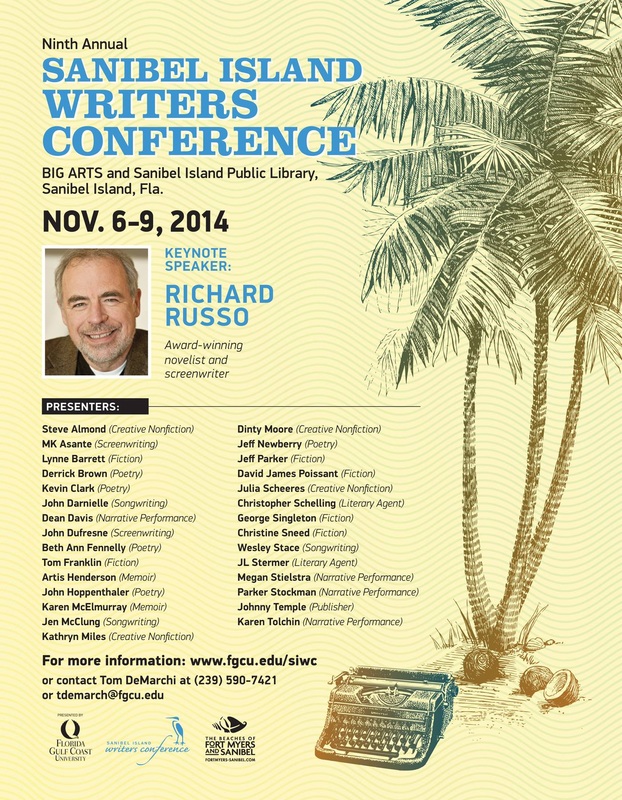
 RSS Feed
RSS Feed

